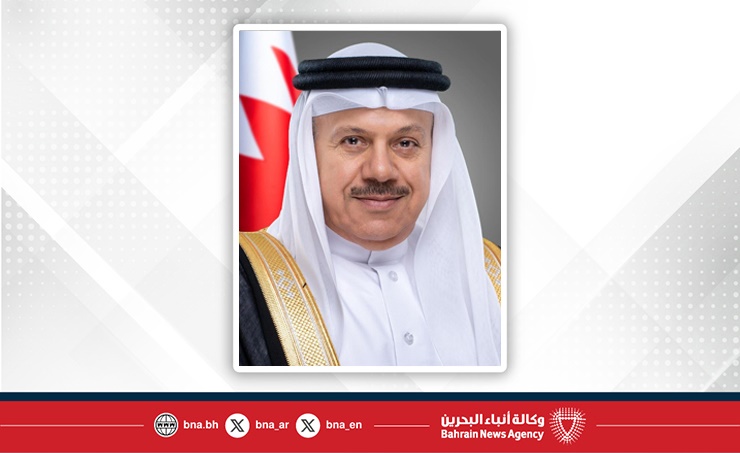Foreign Minister marks International Day of Multilateralism and Diplomacy for Peace

Manama, Apr. 23 (BNA): Dr. Abdullatif bin Rashid Al Zayani, Minister of Foreign Affairs, affirmed that under the leadership of His Majesty King Hamad bin Isa Al Khalifa, the Kingdom of Bahrain continues to stand out as a leading model of balanced and principled diplomacy.
He commended the Kingdom’s commitment to strengthening multilateral cooperation under the United Nations framework, aimed at securing a better future marked by peace, security, sustainable development, and respect for human rights.
Marking the International Day of Multilateralism and Diplomacy for Peace, observed annually on April 24, the Foreign Minister expressed pride in the royal vision and the government’s approach, led by His Royal Highness Prince Salman bin Hamad Al Khalifa, the Crown Prince and Prime Minister, towards constructive diplomacy and the promotion of shared human values to safeguard the rights of present and future generations, and to advance global peace, stability, justice, and prosperity.
Dr. Al Zayani reviewed Bahrain’s contributions as an active partner in fostering peace and stability through its engagement in regional and international organisations, including the Gulf Cooperation Council (GCC), the Arab League, the Organisation of Islamic Cooperation (OIC), and the Asia Cooperation Dialogue (ACD). He also noted Bahrain’s ongoing peace-building efforts, including support for the Palestinian cause, humanitarian services in education and healthcare for conflict-affected populations, and initiatives on digital transformation, in the context of its presidency of the 33rd Arab Summit, "Bahrain Summit."
He underlined Bahrain’s aspiration to secure a non-permanent seat on the United Nations Security Council for the 2026–2027 term, aiming to serve as a constructive voice for dialogue, a contributor to peacebuilding, a defender of maritime and cybersecurity, and an advocate for tolerance, human fraternity, justice, and peaceful coexistence consistent with international law, the UN Charter, and the 'Our Common Agenda' framework for advancing multilateral diplomacy and preventive action.
Dr. Al Zayani also noted the Kingdom’s efforts to strengthen multilateral cooperation through global initiatives and awards promoting coexistence, tolerance, humanitarian service, and the empowerment of women and youth. He highlighted the UN’s endorsement of the King Hamad Global Centre for Peaceful Coexistence initiative, which led to the establishment of the International Day for Living Together in Peace. He also welcomed Bahrain’s support for the Strategic Partnership Framework for Sustainable Development, signed with UN agencies for the 2025–2029 period.
He further commended the address by His Royal Highness the Crown Prince and Prime Minister to the United Nations General Assembly, calling for enhanced multilateral cooperation to build a more just and inclusive international order, with full respect for human dignity. The address underscored the need for comprehensive reform of the UN system, including the Security Council, and the development of global financial and health institutions such as the IMF, World Bank, and WHO. His Royal Highness also proposed the adoption of an international treaty to govern the development of artificial intelligence and called for the establishment of strong international institutions and effective security, defence, and economic frameworks to bolster global solidarity in addressing geopolitical, environmental, health, and technological challenges.
Concluding his statement, Dr. Al Zayani reiterated Bahrain’s commitment to continuing its diplomatic path under the leadership of HM the King and the support of HRH the Crown Prince and Prime Minister. He affirmed Bahrain’s ongoing dedication to supporting just Arab and Islamic causes and advancing comprehensive and lasting peace in the region and the world, driven by its civilisational values and belief in multilateralism, collective responsibility, and active international partnerships to build secure, prosperous, and interconnected human societies. These efforts align with the National Human Rights Plan (2022–2026), the Sustainable Development Goals, and relevant international frameworks.





